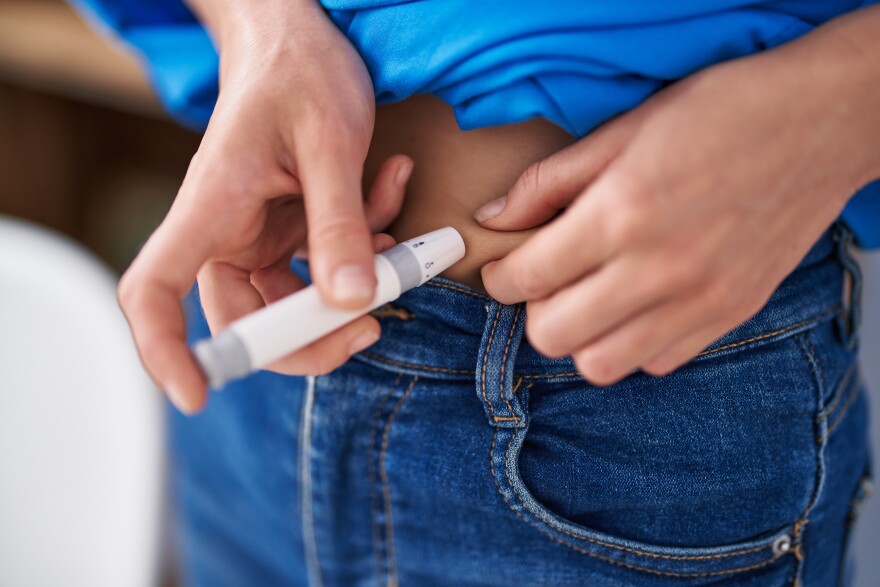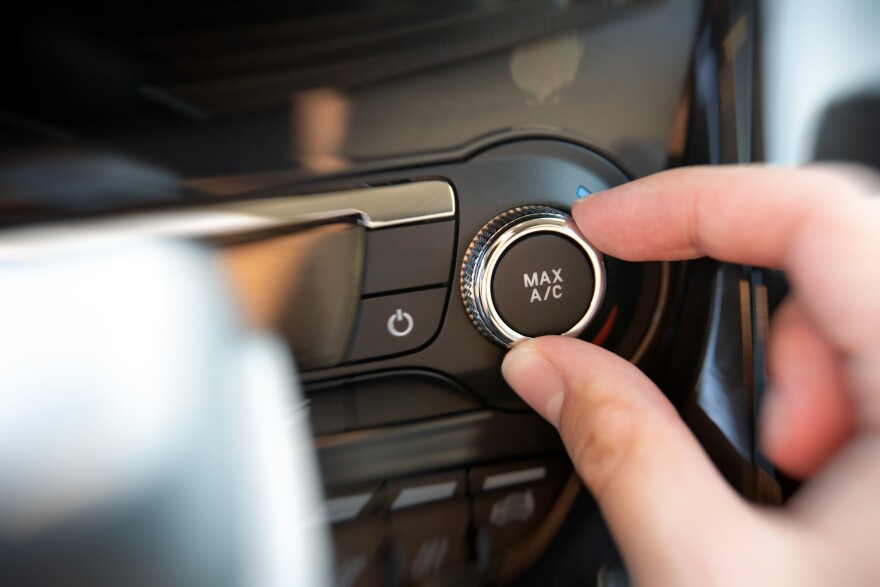BETHLEHEM, Pa. — As temperatures soar across the region this summer, local pharmacists and health experts are urging residents to think twice about when and where they store their medications.
And how weather could make some prescriptions ineffective or even dangerous.
While many people know to keep certain medications in the refrigerator, experts say there’s confusion about how quickly heat and moisture can compromise everyday medicines such as insulin, inhalers, blood thinners and common antibiotics.
“In general, most medicines, even pills, tablets of Advil and things you can buy over the counter, all have storage recommendations on them,” said Brianna Brown, a clinical pharmacist at Lehigh Valley Health Network.
The problem is, not everyone reads those recommendations.
“There's some other injectable medicines, you know, for cancer or for cholesterol, and oftentimes patients don't realize that when they pick that up from the pharmacy it was in the refrigerator."Brianna Brown, clinical pharmacist at LVHN
“There's some other injectable medicines, you know, for cancer or for cholesterol, and oftentimes patients don't realize that when they pick that up from the pharmacy it was in the refrigerator,” Brown said.
“They might not see it come from the refrigerator, and then they'll take it home.”
She said some medications — insulin, for example — are stable at room temperature for a certain period, often up to 28 days, but can quickly lose effectiveness if they get too hot or too cold.
Leaving medicines in a hot car or a purse in the sun can damage them — sometimes in as little as five minutes — making it important to check the label for proper storage temperatures, Brown said.
“Also, some of them should be protected from light,” she said.
“Don't leave it on the dashboard or right by the window. Some of those medicines can be damaged when they're exposed to light, which is actually why those orange vials, or those dark blue vials, are what you get your pills in, because we're hoping to protect them from light.”

Heat-damaged meds could land you in the ER
It’s not just Brown and LVHN sounding the alarm on the issue.
Recent data from the U.S. Centers for Disease Control and Prevention indicates what experts say is a concerning connection between extreme heat, compromised medications, and increased emergency room visits.
While the data doesn't always specifically attribute the increase solely to compromised medication, the two factors often intertwine.
For example, the CDC said individuals with chronic health conditions, and those taking multiple medications, are particularly susceptible to the combined effects of heat and medication interactions.
Data showed that in 2023, there was a higher rate of heat-related emergency visits among ages 18 to 64, and among males.
Brown said people should be aware that some medications can make you more sensitive to sunburn or dehydration in hot weather.
Doxycycline, an antibiotic used to treat Lyme disease, is one example.
“That one can really increase your risk of sensitivity to the sun,” she said, emphasizing the state’s high tick population and the corresponding number of patients that may be taking this medicine.
“That one's important to make sure [if you’re taking it] you have your sunscreen on and you’re staying out of the sun in the peak hours to reduce your risk of sun poisoning and sunburn,” she said.
And for many medications, and just for people in general, it's really important to stay hydrated.
“When people become dehydrated, they're losing a lot of water," Brown said. "Sometimes side effects can be higher from medications, especially the medications that work to take out excess fluid, like medicines that can be used for heart failure.
“Their job is to get extra fluid out of the body. And if we're getting too much out and folks are dehydrated, those can be harmful for people and put them at risk for trouble with their kidneys.”
Prepare, plan ahead
Forgot your meds on vacation? Accidentally left them in a hot car? Don’t just double your next dose to “make up” for a missed or damaged one, Brown said.
And remember that compromised medications from heat exposure could break down, reducing their effectiveness, or they could release too much medication at once, risking an overdose.
“If you feel like you've taken too much, you know, if you're having any really severe symptoms or you're feeling very ill, you should definitely go to the emergency room right away and seek emergency medical care."Brianna Brown, clinical pharmacist at LVHN
“If you feel like you've taken too much, you know, if you're having any really severe symptoms or you're feeling very ill, you should definitely go to the emergency room right away and seek emergency medical care,” she said.
“Even if you're feeling OK, you should definitely contact your doctor and let them know what happened.
“Sometimes the effects might not be seen for several hours. You might be feeling OK, and then you're out and about, and your blood pressure goes way too low, and it can be really dangerous.”
Brown said it’s important to plan ahead — for medicines needed on vacation, while traveling, or even what to do if there are power outages at home — to make sure you have the right medicines available at the right dose, and that you’re storing them properly.

“There are some medicines where it can be really dangerous if you miss even one dose, like seizure medicines or blood thinning medications," she said.
"You know that it really is important to take it every day. So I think that's important to have a plan in place."
And the bottom line?
Brown said high temperatures posing hidden risks with medications is not the type of story that makes headlines like heatstroke does — but it can impact so many people.
“You might pull out a bottle and notice that medication looks a little bit off, but it can be hard to tell.
“But if something looks or smells different than it usually does for you, that's kind of your red flag to question. Maybe, was this stored properly?
"Or even bring it back to the pharmacy and say, ‘Hey, this doesn't look like it usually does or doesn't match the description.
“That's a good way to prevent medication errors too, is always checking your medicines before you take them.”
Tips to remember
- Read the paperwork and check the storage temperature on your prescriptions
- Don’t leave medications in hot cars, direct sunlight or in freezing temperatures
- Use coolers or ice packs for prescriptions when traveling
- Ask your pharmacist about side effects in the heat from medications
- Inspect pills and liquids for changes in look or smell
- Call your doctor or pharmacist if you think your medicine was compromised.


